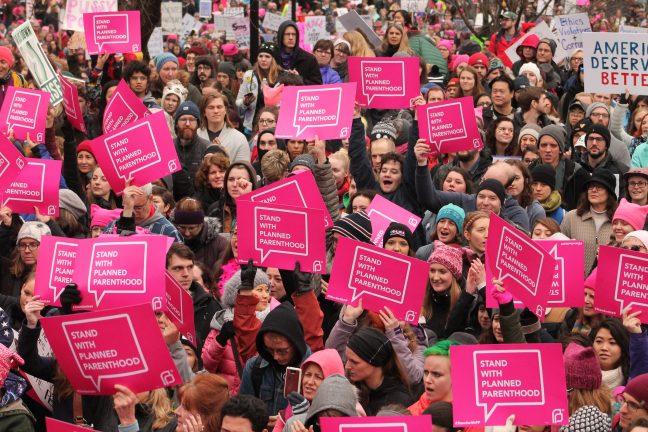On June 21, Gov. Tony Evers vetoed four abortion bills which were passed by the Republican-controlled Legislature. All four were centered around limiting safe abortions for Wisconsinites.
One of the bills sought to imprison physicians who failed to provide adequate medical care in the rare cases where the fetus is born alive, despite the abortion attempt. Others aimed to limit the accessibility of pro-choice organizations such as Planned Parenthood.
Suffice it to say, Republican lawmakers are not happy. Jim Steineke, Republican Assembly Majority Leader, said while he was not surprised, he was “incredibly saddened” by Evers’ veto.
Three months later, the veto holds strong and safe abortions continue to be accessible in Wisconsin.
But advocates for reproductive rights should not rest easy. Despite the vetoes of these recent bills, Wisconsin still has pre-Roe v. Wade “trigger laws,” which would immediately criminalize abortion in the event that Roe v. Wade was overturned.
Therein lies the heart of the problem — the Republican, pro-life agenda.
Protestors gather at Capitol in #StopTheBans movement advocating for abortion rights
As states continue the trend of passing increasingly restrictive abortion bills, especially within the Midwest, pro-life advocates are well on their way to gaining enough traction to severely undermine Roe v. Wade, perhaps even to the point of overturning the decision.
Repealing Roe v. Wade would leave abortion laws entirely up to each state. This is particularly troubling within Wisconsin, as it will almost certainly regress to pre-Roe v. Wade laws, banning abortion altogether with few exceptions in cases of jeopardy to the mother’s health.
Besides the obvious constitutional crisis that arises from restricting a woman’s right to her own body, overturning Roe v. Wade would have devastating ramifications. It has long since been proven that the criminalization of abortions does not prevent abortions, it prevents safe abortions. America already has the highest maternal mortality rate in the developed world, and this statistic is only bound to get far worse as we continue to limit women’s access to adequate healthcare.
A lack of abortion clinics does not serve as an effective deterrent for desperate women. Instead, this makes them twice as likely to undergo extremely unsafe and invasive practices which astronomically increase their chance of infections. This can ultimately result in the deaths of both the mother and the fetus.
The chances of death increase even further among recent high school graduates as insufficient sex education continues to remain an issue throughout the nation.
Restricting access to abortion also disproportionately affects those in poverty and women of color. The majority of people seeking access to abortion are those from minority populations, and in 2014, around 75% of abortion patients were low-income or in poverty.
Evers’ dedication to women’s health an important step in reversing dangerous Walker policies
One of the bills Evers vetoed would have prevented Medicaid from insuring abortions, making it financially harder to get an abortion. Current abortion laws dictate women must wait a 24-hour period before getting an abortion, which is extremely problematic for women who cannot afford to miss multiple days of work.
At best, Republican lawmakers remain ignorant of the economic, racial and downright sexist consequences of outlawing abortion. At worst, this may just be their intention.
It is no coincidence that while they push for a slew of restrictive laws in the name of protecting preterm fetuses, they are radio-silent once the baby is actually born. Limiting women’s civil rights is a way to subjugate middle-class women and people of color — an already-pressing issue within a state which has been deemed the most racially segregated in the U.S.
When Evers vetoed those four bills in June, he released a statement regarding his position on the matter.
“Everyone should have access to quality, affordable healthcare, and that includes reproductive healthcare,” the press release said. “Politicians shouldn’t be in the business of interfering with decisions made between patients and their healthcare providers.”
Before even vetoing the bills, he affirmed his stance in a tweet.
We shouldn’t be limiting the right for women to make their own healthcare decisions. That’s why I’ll veto the bills passed by the Assembly last week if they arrive on my desk. It’s time to listen to women. #StopTheBans
— Governor Tony Evers (@GovEvers) May 21, 2019
A closer look at Evers’ pledge to invest millions toward improving women’s health care
But with existing laws aimed to misinform and shame women seeking abortions, we are a long way away from enabling women in being fully informed on their abortion decisions.
His pro-choice sentiments are shared by many Wisconsinites — a survey conducted by Marquette University Law School indicated that 56% of people surveyed believed abortion should be legal in most cases.
But with increasing pressure from Wisconsin Republicans, this push for more accessible abortions has not been reflected in current abortion practices. The passiveness of voters and legislators, current restrictive abortion laws within Wisconsin, and potential criminalization of all abortions amalgamate to potentially set back the country at least a hundred years in terms of women rights.
So, Gov. Evers, good job on taking a step forward in progressing Wisconsin, but don’t forget that this is a marathon you’re just beginning to fight for.
Samiha Bhushan ([email protected]) is a freshman intending to major in neurobiology, English literature and sociology.














